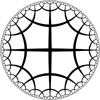By Laura Hersh
I come from many places, living the life of a nomadic seed that drifts from town to town – landscape to landscape – settling in, then moving on when the lesson is learned and the time to go is ripe. Threads connect me to people and places in the tri-state area: the New England Coast Line, the Mid-West bottom-land swamps and the Pacific Northwest rainforest. Today, the jet plane touches down in my birthplace where salt marshes and oak woodland forest wrestle with the suburban and urban way of life. Ever-changing, Long Island, New York struggles to stay the same. I was born here in Massapequa, where the woodlands and ocean course through my veins.
It is August. Hot, humid air saturated with salt. The cicadas whine by day, and the chorus of katydids and crickets soothes the night. I have changed. I am always changing, like the moon. It has been three years since I’ve been here in my home, the neighborhood that sculpted this human being. Life here has not always been comfortable. My heart has been closed to feeling and acknowledging the places and people that to stir up past memories is too uncomfortable to be within the present.
For two years I have been meditating – looking, seeing clearly, forgiving more, loving my parents, accepting the driving forces of nature and place that brings me to this moment of reflection. Walking barefoot, wearing shorts, I see the plants and am called to attention. Below my feet all around is poison ivy. There is no poison ivy in Western Washington, just a few isolated patches of poi-son oak in Seward Park and, as far as I know, Vashon Island.
My dad greets me at the airport grinning. His hair is a little grayer than last time. His eyes are wet and he is as happy as I am to hold one another on home soil. My dad’s name is Paul. He is 6 foot 2, a big guy. He is a retired Nassau County police officer, a scout. It seems to me that he plays the over nurturing Jewish “mom” in the family – no doubt traits that he picked up from his mother and my grandmother, Bernice Hersh-Podgora.
We head west from Islip Airport. Our first stop, upon my request, is to Phil’s Pizza to get a slice. Once this is done, it is official – with steaming marinara sauce and Italian mozzarella mingling with salt air and offshore breezes – I am home. New Yawkahs talk loudly with gesture, big hair, done up nails. I smile as I carry the large pie out the door. I place it on my lap. When I was a kid, my dad and I would go to the pizza parlor on frigid nights. I loved to hold that pie on my lap, burning my thighs through my blue jeans. We would listen to the oldies station, to B-103 doo-wop and the Beach Boys. As I approached being a teenager, the door to love and appreciation for my parents closed bit by bit.
Today I can hold this pizza on my lap, proud of this loving man. I am ready to understand this man who has dedicated so much of his time, love, energy and effort into giving me the most opportunity that he could for the life that, perhaps, he did not have. He lost his father to emphysema in 1965. He was 16 years old with an 11-year-old sister and a mother. Bernice went out into the workforce again, broken-hearted. My dad was now a provider.
We arrive at home with the pizza. Inside is my mother, Linda. She has just had back surgery. For years she has suffered from lymphedema in her legs. Her body and mind are worn thin. The breaking of her mortal body reveals the softer parts inside. I reach over and stroke her back, rub her feet, talk soothingly. I am mothering my mother. For the first time in a long time I do not curl away from showing her physical and emotional affection. Love flows freely. I remember her youthful looks when she was 32 through the wrinkles and ace bandages.
Katydids and crickets sing through my childhood window screen over-looking Doris Place and Toronto Avenue. This is the same screen that I would spy on the teenagers making out in their cars as I would dream of one day having a boyfriend. I lay in bed comforted by the energy of these familiar places, familiar objects – a vibration of innocence.
Days later Hurricane Irene hit. We were a community that came together, stocking up on resources, clamoring for gas, cooking meals for one another, mooring boats, boarding windows, sharing homes. Through the night we stayed inside. There goes the power. The sky, normally illuminated by light, is dark. The oak leaves rattle wet against themselves. We await the morning and emerge into the light to witness the damage done by Mother Nature.

